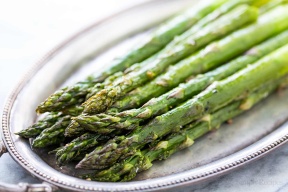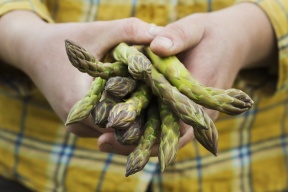

A single protein building block commonly found in food may hold a key to preventing the spread of an often-deadly type of breast cancer, according to a new multicenter study published in the medical journal Nature. Investigators found that by limiting an amino acid called asparagine in laboratory mice with triple-negative breast cancer, they could dramatically reduce the ability of the cancer to travel to distant sites in the body. Among other techniques, the team used dietary restrictions to limit asparagine.
Foods rich in asparagine include dairy, whey, beef, poultry, eggs, fish, seafood, asparagus, potatoes, legumes, nuts, seeds, soy and whole grains. Foods low in asparagine include most fruits and vegetables. “Our study adds to a growing body of evidence that suggests diet can influence the course of the disease,” said Simon Knott, PhD, associate director of the Center for Bioinformatics and Functional Genomics at Cedars-Sinai and one of two first authors of the study. The research was conducted at more than a dozen institutions. If further research confirms the findings in human cells, limiting the amount of asparagine cancer patients ingest could be a potential strategy to augment existing therapies and to prevent the spread of breast cancer, Knott added. Studying the effects of asparagine also could alter treatments for other types of cancer, investigators say.










